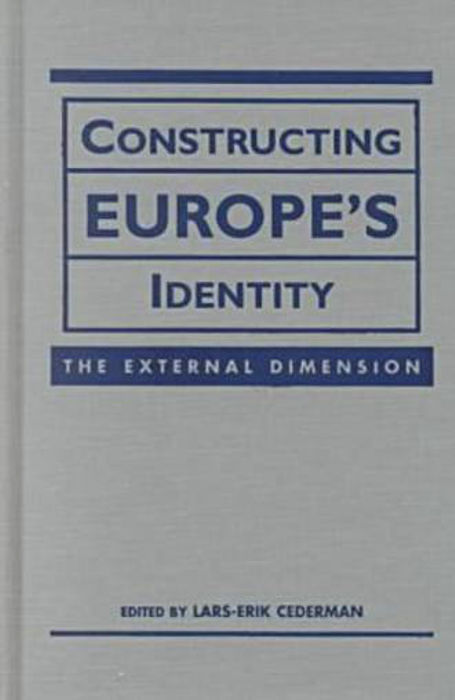Books
Lars-Erik Cederman
Constructing Europe's Identity: The External Dimension
How is a collective European identity shaped not just from within, but through the EU’s interactions with the outside world? Constructing Europe’s Identity: The External Dimension explores how boundaries, external relations, and policy choices contribute to the ongoing process of defining what “Europe” means—both for insiders and outsiders.
Departing from traditional approaches that focus on internal dynamics, this book investigates how the European Union’s identity is constructed through its external actions and relationships. It concentrates on three broad areas, each associated with a Maastricht pillar: socioeconomic issues (European Communities), foreign and security policy (CFSP), and home affairs (Justice and Home Affairs). The contributors examine how the EU’s engagement with external actors and environments—through trade, diplomacy, and migration policy—shapes and sometimes challenges the boundaries of European identity.
A central theme is the trade-off between “deepening” and “widening” Europe: defining identity too narrowly risks exclusion and protectionism, while an overly broad definition may dilute the values the EU seeks to project. The book provides a conceptual framework for understanding the role of boundaries in identity formation, drawing on theories of social boundaries and interaction. It also considers the risks and costs of asserting a European identity abroad, such as the potential for exclusion or the erosion of core values.
Empirical chapters analyze how the EU’s external policies—ranging from enlargement and neighborhood relations to justice and migration—impact both how Europe is seen by others and how Europeans see themselves. The book ultimately argues that Europe’s identity is not static, but is constantly negotiated at the intersection of internal priorities and external pressures.
Constructing Europe’s Identity: The External Dimension stands out for its nuanced analysis of how Europe’s self-understanding is shaped by its interactions beyond its borders. By linking theoretical insights with empirical case studies, the volume offers a critical perspective on the dilemmas and opportunities the EU faces as it seeks to define and project a distinct identity in a complex international environment.

